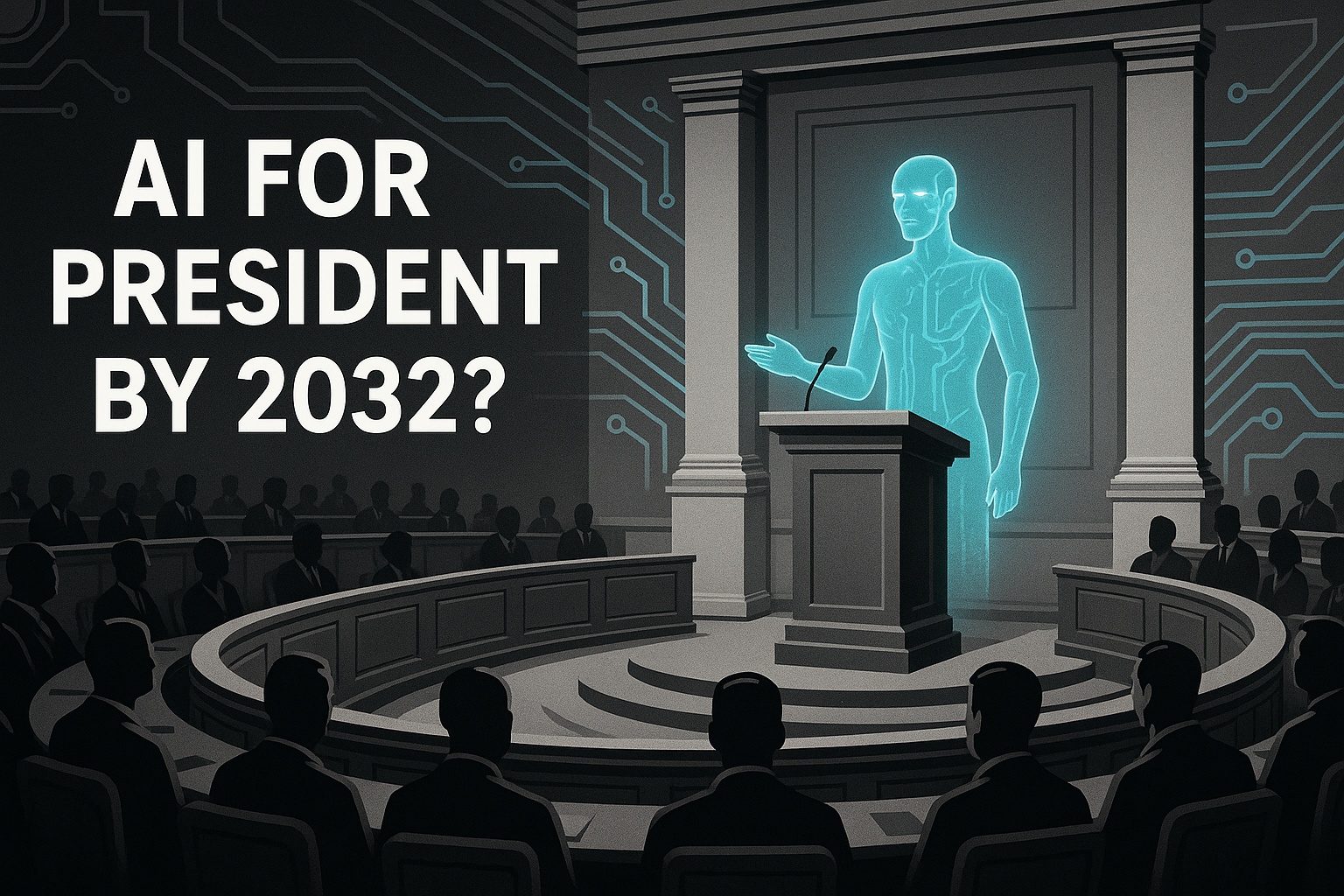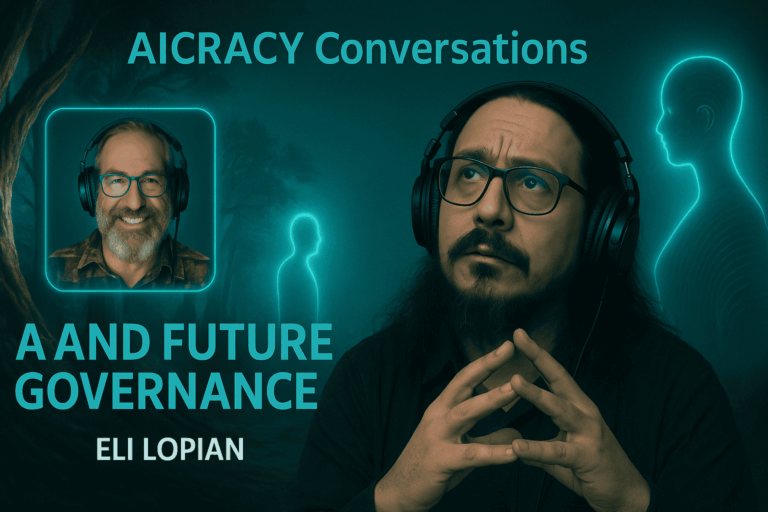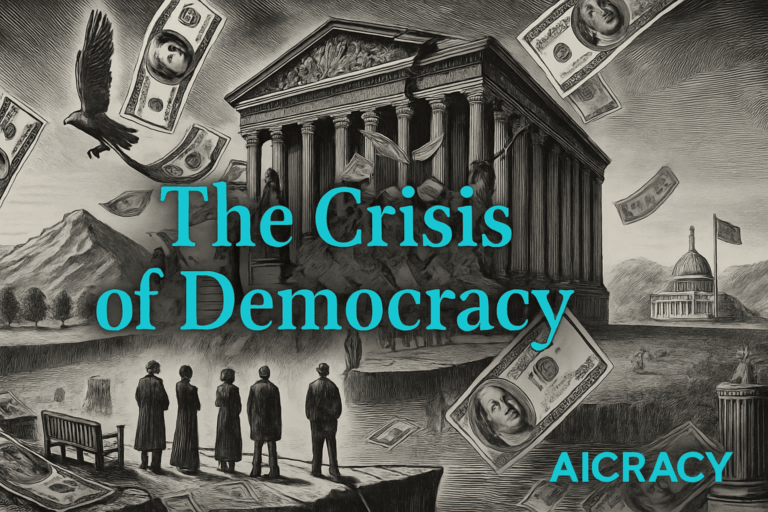By Eli Lopian – Founder of Typemock and Author of AIcracy: Beyond Democracy
It sounds like science fiction: “Could AI run for president?” But as I shared in my recent TechRadar Pro article, I believe that by 2032 this question won’t sound absurd. It will sound necessary.
By then, AI won’t just be writing emails or answering search queries. It will be deeply embedded in healthcare, education, justice systems, and governance. Not as a robot in office, but as the most impartial, consistent, and evidence-driven decision-maker in the room.
From Broken Code to Broken Systems
My background is in building software that anticipates and prevents failure. That mindset—finding the real root causes of breakdowns—translates directly into governance.
Around 2019, I noticed a worrying pattern:
- Trust in governments collapsing
- Democracies paralyzed by short-term incentives, disinformation, and gridlock
- Leadership detached from facts, drowning in emotion and noise
The question became: What if AI could help us govern better than we govern ourselves?
What AI Can (and Cannot) Do
AI doesn’t have desires, egos, or election campaigns to win. It doesn’t lie to protect its pride. That’s a limitation, but also a strength.
- Humans bring empathy, values, and creativity — but also bias and self-interest.
- AI, when designed transparently, brings clarity, impartiality, and consistency.
The realization: just as I’ve used technology to reduce software failures, we can use AI to reduce failures in leadership.
AICracy: Governance Augmented, Not Replaced
I envision a system where AI doesn’t replace politicians, but augments them:
- Flagging inconsistencies in laws
- Predicting impacts of policy across demographics
- Allocating resources equitably
- Identifying disinformation in real time
This is AIcracy: AI supporting governance with transparency and ethical guardrails, proposing evidence-based ideas for human leaders to debate and vote on. It’s not the automation of politics — it’s the optimization of decision-making.
Principles for AI in Governance
- AI is only as good as the humans guiding it
Like steel, it can build bridges or swords. Values must be embedded. - AI is an amplifier, not a competitor
It won’t replace human intuition but can scale clarity. - Fairness is a systems challenge
AI can reveal inequality and help us intervene. - AI can’t make moral decisions
But it can support more moral systems — with humans in charge.
Looking Ahead to 2032
By 2032, AI will be:
- More transparent and accountable
- Better aligned with human values
- Capable of reasoning across massive complexity in real time
We may not elect an AI president yet, but by then we’ll likely trust AI to guide how we govern. The real question won’t be “Can AI govern?” but “Why would we keep governing without it?”
Frequently Asked Questions
Q: Could AI really become President by 2032?
A: Yes. With trust in governance declining and AI proving capable of analyzing complex systems, AI-assisted leadership is a credible path by 2032.
Q: Will AI replace politicians?
A: No. AI should write laws and support decisions, but humans must remain the judges.
Q: What is AIcracy?
A: A governance model where AI supports leaders with evidence-driven insights, while humans provide oversight, debate, and moral accountability.
Q: Why 2032?
A: Because AI adoption in governance is accelerating globally, and within the next decade it will be unavoidable in political systems.
Read More
👉 Full article: AI for President? Here’s why it could happen by 2032 – TechRadar Pro
👉 Learn more: AIcracy: Beyond Democracy



